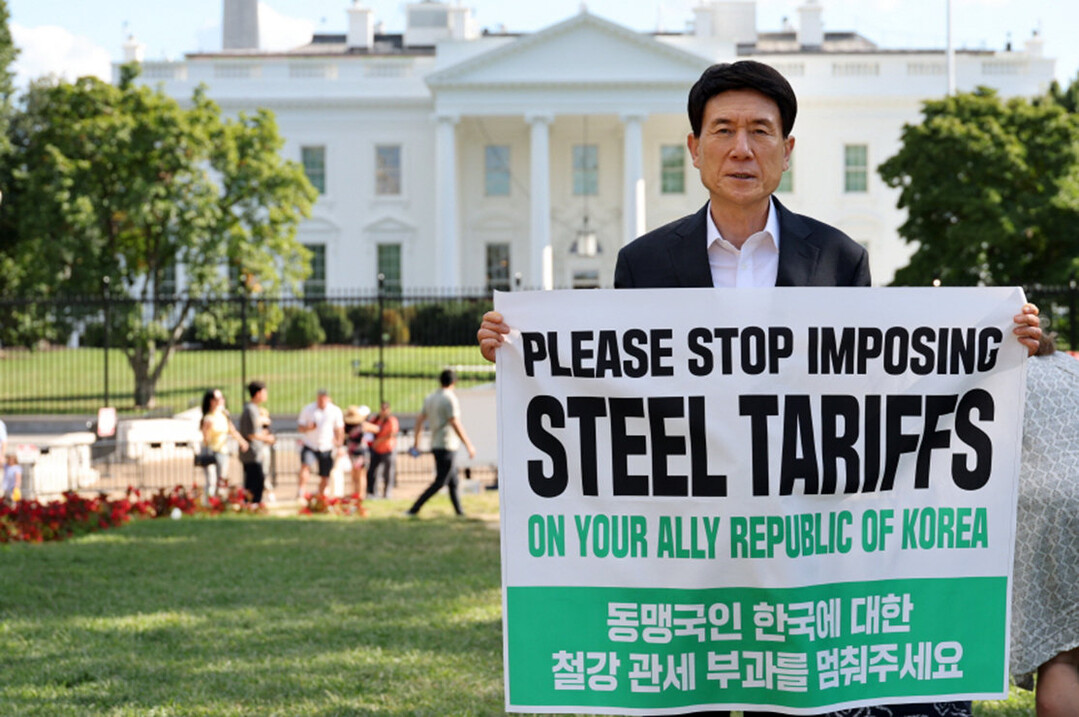
WASHINGTON, D.C. – The industrial heartland of South Korea, Pohang, a city often likened to America’s Pittsburgh for its central role in steel manufacturing, is facing an existential economic crisis following the imposition of new, high-rate US tariffs on imported steel. The severity of the situation was dramatically underscored by an unprecedented protest in Washington, D.C., staged by the city’s own mayor.
Pohang Mayor Lee Kang-deok traveled to the US capital to personally confront the policy, telling the Wall Street Journal that the tariffs have brought the city “to the brink of death.” The US administration, led by President Donald Trump, levied tariffs of up to 50% on steel imports in June, a measure intended to protect US domestic producers but which has delivered a massive blow to key allies like South Korea.
A Mayor’s Desperate Plea
Mayor Lee's journey across the Pacific and his protest near the White House in early September made him a rare figure: a foreign public official directly demonstrating against US policy on American soil. Initially, colleagues reportedly dismissed his suggestion to protest, but the threat to Pohang's economy proved no laughing matter.
Holding a sign that pleaded, “Please stop imposing steel tariffs on our ally Republic of Korea,” the 63-year-old mayor and his delegation positioned themselves in clear view of the White House. While many passersby remained indifferent, the WSJ reported that some offered gestures of encouragement, a small sign of support for a desperate cause. Lee’s dramatic action reflects the extreme pressure on Pohang, a city whose fortunes have been inextricably linked to steel since the post-war national reconstruction, home to giants like POSCO (formerly Pohang Iron and Steel Company).
Economic Fallout in the Steel Heartland
The steep tariffs have compounded pre-existing challenges for the South Korean steel industry, which was already struggling with a global slowdown in demand and an influx of cheap Chinese steel. Pohang’s major steel mills are now operating at significantly reduced capacity, with utilization rates plummeting to 60-70% from a historical high of 90%.
The ripple effect across the local economy is severe. The WSJ cited one truck driver, responsible for transporting finished steel coils, who reported a one-third drop in income since the US tariffs took effect. Logistics yards now see trailers standing idle for prolonged periods, and city officials are noting a visible increase in vacant storefronts, reflecting a deepening regional recession. Furthermore, major steel companies in Pohang, including POSCO and Hyundai Steel, have seen substantial declines in corporate income tax contributions to the city, adding financial strain to the municipal government.
Uncertain Trade Future
While negotiations between Seoul and Washington seemed to have reached a tentative agreement in July, uncertainty remains, particularly over US demands for South Korean investment. Crucially, the WSJ noted that the preliminary deal did not explicitly address a reduction in the tariff rate, leaving the threat of the 50% duty hanging over South Korean exports.
The US move has also triggered a ripple of protectionism globally, with the European Union considering similar measures, including a cut to import quotas and a potential 50% tariff hike. The crisis has prompted the South Korean government to designate Pohang as a "Preemptive Industrial Crisis Response Area" and propose the "K-Steel Act," a legislative effort to bolster the industry. However, local officials and industry experts warn that such domestic measures may not be enough to counter the devastating impact of the high US tariffs, underscoring the necessity for a diplomatic solution to lower the formidable trade barrier. The fate of Pohang, the industrial engine of the nation, now hangs in the balance, contingent upon a breakthrough in the fraught international trade dispute.
[Copyright (c) Global Economic Times. All Rights Reserved.]




























